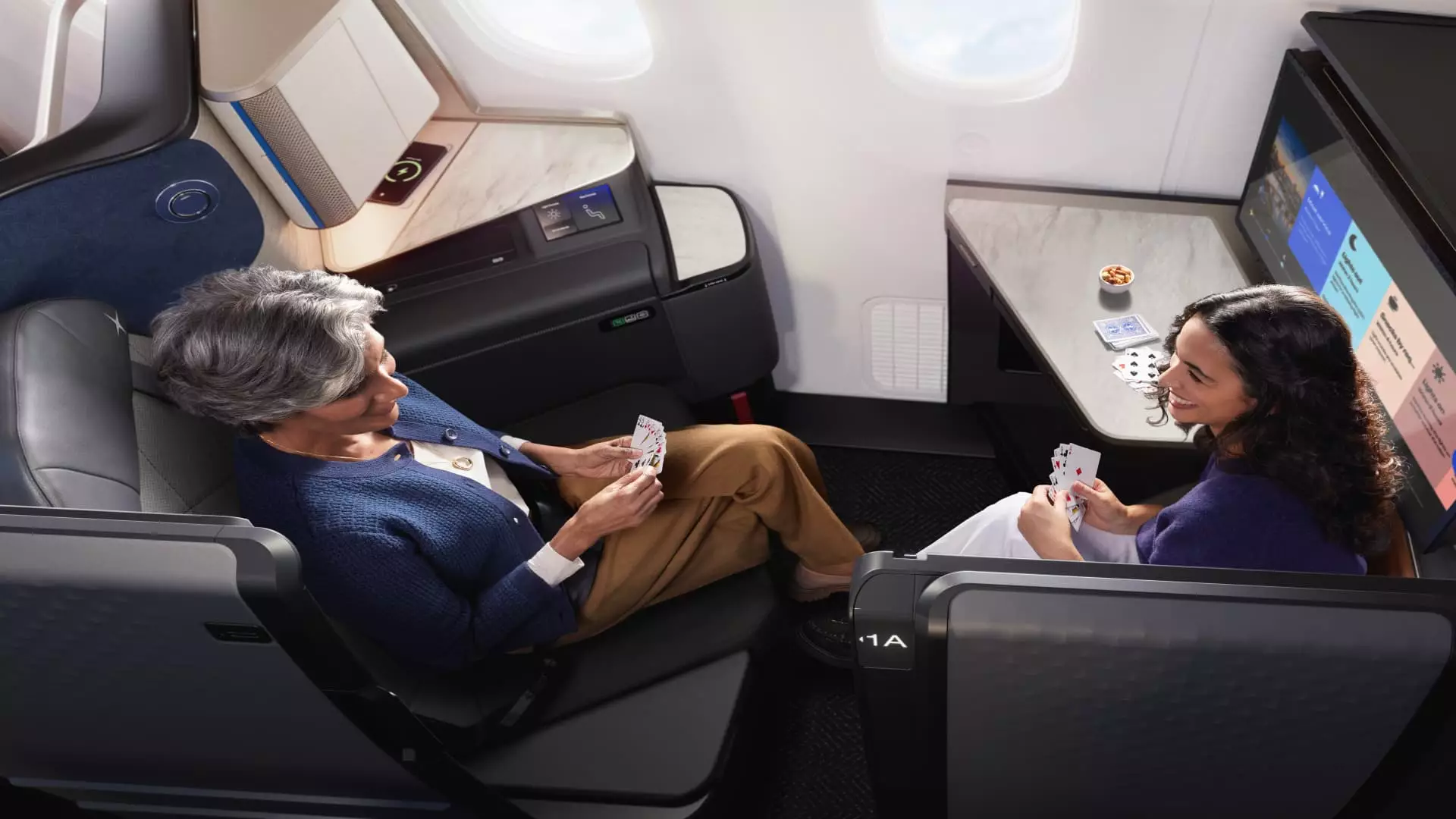In the relentless quest for supremacy in international business-class travel, U.S. airlines are seemingly outdoing one another in a race featuring lavish amenities, exclusive experiences, and astonishing price tags. Armed with trinkets like caviar and luxurious Bang & Olufsen headphones, airlines aim to snatch up a market segment traditionally reserved for the elite. But as they attempt to become the best in the sky, are they blind to the ethical implications of this ostentatious showmanship? The recent unveiling of American Airlines’ premium business-class “suites” — complete with sliding doors and a “trinket tray” — brings to light not just the excess but also a disturbing truth about consumerism in the age of inequality.
American Airlines has chosen to present an image of luxury with its upgraded suites, featuring an increase in space and amenities that is marketed as a “living area” more abundant than before. While the promotional language is enticing, one might wonder what impact such luxury has on the ethos of air travel and the environment. With tickets priced at staggering figures, notably $5,747 for a round trip from Philadelphia to London, it becomes glaringly evident that only a narrow slice of the population can afford such opulence. This approach risks creating an elitist divide in the air, making travel even less accessible to the average person, all while promoting an unhealthy culture of conspicuous consumption.
The Illusion of Choice
As United Airlines enters the fray with its Polaris long-haul business-class seats, it’s engaged in a dangerous game of competitive indulgence. Their latest innovations feature larger studios, complete with 27-inch 4K screens and additional amenities. The mere existence of higher-tier seats — such as the Polaris Studio — signals a troubling philosophy: if you can afford to pay more, you should be rewarded with an esoteric flying experience. What these airlines seem to overlook is that this game of musical chairs does not inherently mean progress; rather, it reinforces socioeconomic stratification while giving the illusion of choice.
While all this emphasis on upgrading beautiful cabins raises questions about differentiation, it paradoxically underscores a haunting reality: business class is becoming more like first class of old, and “first class” is hedged into a corner of exorbitant expenses reserved for only the wealthy few. The marketing rhetoric around luxury suggests that airlines are trying to attract a wealthier clientele while neglecting the vast majority of passengers who will continue to endure the crowded, uncomfortable economy sections.
Consequences of Overindulgence
The airline industry’s desire to offer crammed standards of luxury clashes with evolving consumer attitudes toward environmental sustainability. Can these companies genuinely expect consumers to indulge lavishly while the broader populace grapples with climate-induced crises? Robert Mann’s assertion that “the experience in economy is so bad” does little to justify the shifts towards embracing extravagance for the elite. Instead, it further highlights a broken system where the paragon of travel convenience is reserved solely for those with deep pockets, resulting in growing discontent among everyday travelers.
The question remains: is such emphasis on luxury a response to dwindling demand for conventional low-cost tickets? Increasing numbers of premium seats and access to preferred lounges serve not merely as indulgences, but as potentially crucial profit reservoirs that airlines are eager to exploit. The shift to focusing extensively on the “soft product” — fine dining options and luxury amenities — is inherently flawed if it disregards the context of consistent environmental devastation and socioeconomic inequity.
The Future of Airline Trade-offs
As airlines position themselves as purveyors of extravagant air travel experiences, it’s crucial to challenge the positive rhetoric surrounding such developments. Passenger services are evolving rapidly, and in this condition, more responsible, equitable, and sustainable practices must be integrated into future offerings. Luxury travel, even when marketed as a desirable option, must also reckon with notions of empowerment, choice, and accessibility for all.
The current trajectory in international business-class travel is not an isolated phenomenon; it is symptomatic of a broader cultural obsession with wealth and status. While having a sublime experience in the skies is undoubtedly appealing, the cost adds a bitter aftertaste to an otherwise beautiful meal, illustrating just how disconnected we can become from realities on the ground. In an era where equality and empathy should take precedence, the airlines’ efforts to elevate themselves might just reflect a gluttonous veneer, undermining the very potential for inclusivity in air travel. The need for change in how we prioritize our travel experiences has never been more pressing.

